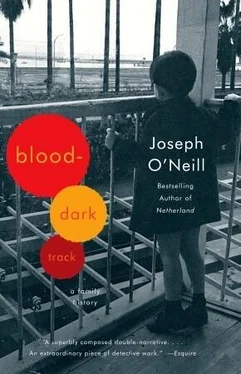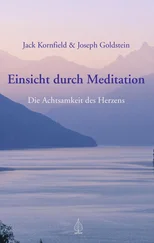I could only think that a clue lay in the humble, agreeable scenes that surrounded me. Although an ancient port and perhaps busier than at any time in its history, Iskenderun remained an unimportant place for anyone other than the small class of people who lived or made money here; but even a local might sometimes feel marooned in such a place. My grandfather was, it seemed to me, in this kind of situation. Although happily rooted in Mersin, he was enthralled by the spectacle of the wider world, which he monitored by reading four newspapers a day and with which he stayed in touch through his work and languages. The documents that he’d chosen to preserve in his safe told a story of sorts. The letter of claim to the British embassy (in English) that was never mailed, the letter of appointment from Lenz & Co. (in German), the letter of commendation from the Baghdad Railway Company (in French) — these papers had no lasting function, yet Joseph Dakak kept them as he might keep land deeds or contracts or promissory notes: as the most valuable documents he possessed. The mystique of foreigners must have been particularly great during the isolated and introspective years Turkey went through from 1923 to 1940, when severe travel restrictions meant that visitors to the country were rare and Mersin was more cut off than ever. Then the war changed everything. There was an influx of European newcomers — diplomats, construction workers, sailors, business people — and it seemed to Joseph that the exciting streams of history on which they arrived were safely navigable by a man like himself. His craft, for this purpose, was neutrality; and his object was to succeed as never before in his central ambition: to be a gentleman of importance . Important meant rich, of course, hence the tin and lemon ventures, but it also meant being connected and knowledgeable — about world affairs, languages, one’s horse, legal matters, archaeology, Turkish politics, important personalities; and, perhaps just as importantly, it meant being seen to be in the know . In wartime, there were hazards attached to such a profile, particularly if (as Oncle Pierre had once remarked to me) the guiding political precept for Mersin Christians was that il ne faillait pas se mouiller : it wouldn’t do to get wet. My grandfather, intoxicated by the success of the hotel and restaurant and the new opportunities, lost sight of this precept, or of its meaning. The fortnight with the Husseini crowd at the Modern Hotel, when he simply could not drag himself away from the action, was a case in point. In his mind, playing cards with the Arabs and listening to their fervent chatter no more rendered him, a Turkish neutral, a political protagonist than a ringside seat turned a spectator into a boxer. He was mesmerized by the idea of himself as a man at the centre of things, a man of accomplishments, a chevalier ; and it was this that led to his incarceration in the house at Emmaus-Latrun, la tour des chevaliers : the tower of the cavaliers.
The egotism at the root of my grandfather’s undoing was not purely spontaneous. Its manifestation, in his cultivated persona of polyglot, gallant, man-about-town, equestrian, revealed the deep impression made by his youthful exposure to the glamorous types from France and England and Germany; but more fundamentally, his self-centredness was in many ways the outcome of the compact he’d made with the Turkish Republic in the early ’twenties. Perhaps because all his life he’d been the object of self-seeking imperialist attention (by 1922, the young Syrian had been educated by the French and employed by the Germans and ruled by the Ottomans, the British, the French and the Turks), Joseph had little sense of the State as an instrument of personal autonomy. If he had cherished the possibility of full-blown freedom, or believed in it, he could have emigrated to France with his brother and sister and reinvented himself. Instead, he settled for modest liberties: a liberty to prosper economically, a liberty to develop his personal qualities, a liberty to mind his own business. It didn’t trouble him that as a Christian Turk he would be excluded from jobs in public service because these exclusions complemented the detachment he felt from nationalistic Turkey and, in a way, exempted him from anything more than a formal engagement in the country’s affairs. By a tacit agreement, his role was limited to acquiescing in the new order and keeping quiet; in particular, colluding in the national silence about the discrepancy between the Kemalist doctrine of equal citizenship of all Turks and the actual treatment of minority groups — notably the Armenians. It was a sad fact that Joseph and the rest of the Syrian community could be counted on in this regard. The social and religious and racial divisions that had immemorially separated the Syrians and the Armenians were so deep, it seemed, that the groups barely existed for each other. This was evinced, in Joseph’s case, by his total failure to perpetuate the fact of their obliteration, which he’d seen with his own eyes, and also by the express words of his testimony. In order to establish his credentials as a staunch Turkish citizen, Joseph portrayed all Armenians mentioned in the testimony in an unflattering, threatening light: Hachadourian was a British spy who spouted anti-Turkish rubbish; the hotelier Ayvazian was a pro-German troublemaker; the Armenian who formerly occupied the condemned men’s cell in the Prison des Sables was a multiple murderer; and, in a conflation of every Turkish fear imaginable, the Armenian prison sergeant in Beirut was an ominous figure who intimated that he’d worked, during the French occupation, as a butcher in Adana.
I knew that my grandfather wrote his testimony at a desperate time, that he had good reason to distance himself from Armenians, and even that he may well have encountered a succession of unpleasant Armenian nationals; but I couldn’t help feeling that these portraits reflected an incapacity to attach significance to the vivid ordeals of his fellow Cilicians or, indeed, to the political passions that lay behind their disastrous fate. True, this incapacity was perhaps necessitated by the demands of survival in Turkey. But my grandfather chose to stay in Turkey and in a sense, therefore, chose to incapacitate himself. He paid a very high price for his choice. When the Second World War came to Mersin, he was unable to appreciate quite how much the issues at stake mattered to its participants, who were being killed in their millions, and what this might mean to their perception of him and his formally neutral actions.
This misconception about the responsibilities of neutrality may have had other consequences. An intelligence agent did not have to be a spy. He could also be a party, acting neither for reward nor out of ideological conviction, who simply offered information openly, gratuitously, unsystematically and therefore, he might feel, innocuously. Joseph Dakak, with no sense that he was taking sides in the conflict, might have given foreigners at the Toros Hotel the benefit of his opinions on current affairs in Turkey, or on the personalities of Mersin society, or on anything he could reasonably help them with. Few things would have been more pleasant or have come more naturally: after all, his function as a hotelier was precisely to be of service to his guests. Joseph Dakak may have been innocent, but innocent of what? It pained me to acknowledge it, but this was a question I would never be able to answer with certainty.
When I returned to the Hitit Hotel later that evening, the receptionist at the hotel, Ali, invited me to join him and a man from Lebanon, who described himself as a Phalangist and was dressed in a vest and pair of stripy underpants, for a glass of tea. The three of us sat outside attempting conversation, Ali and I in pidgin Turkish, the Phalangist gentleman and I in pidgin French, and Ali and the Phalangist gentleman in fluent-sounding Arabic. It was a situation of the old Levant that my grandfather, as a speaker of French, Turkish, Arabic and English, would have enjoyed and mastered. There was something else that he would have liked: the Phalangist (who mysteriously wouldn’t reveal what his business was) was on his way to Mersin, where he had a room booked at the Toros Hotel.
Читать дальше
Конец ознакомительного отрывка
Купить книгу












